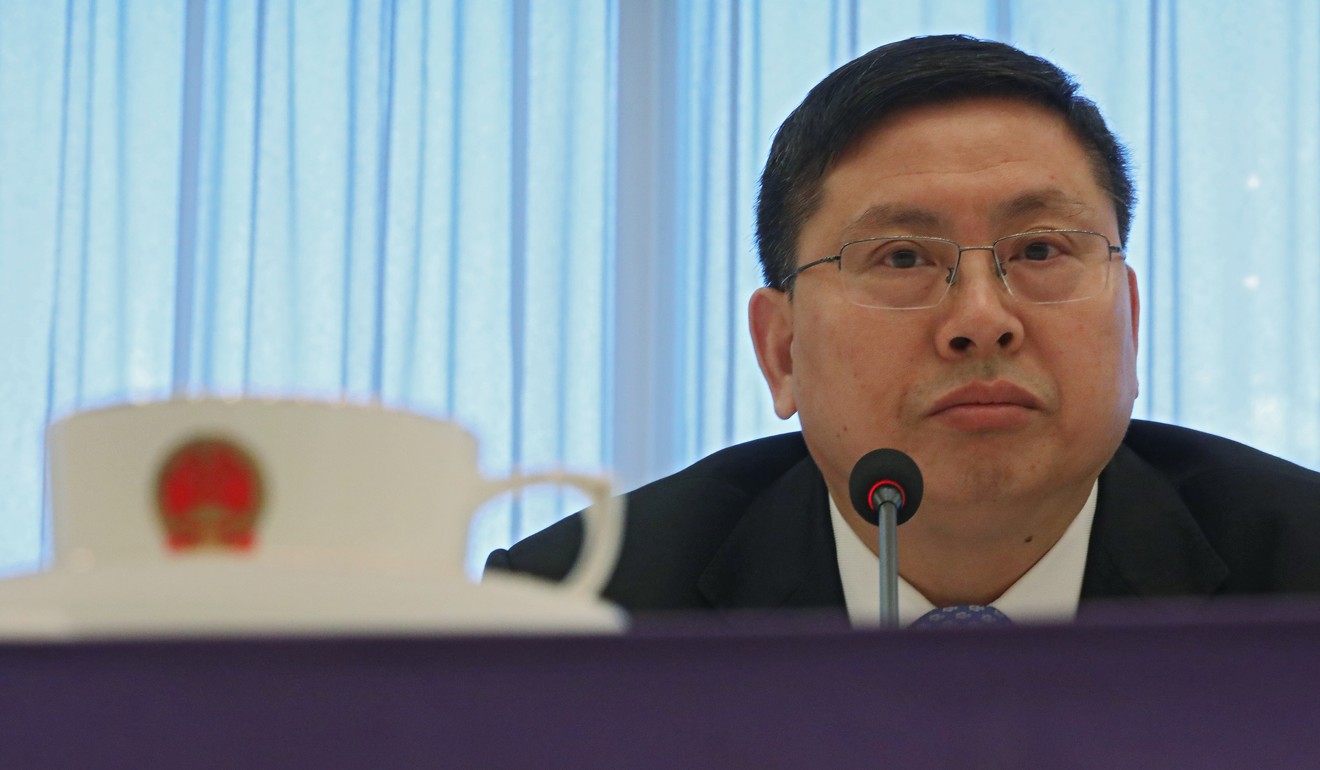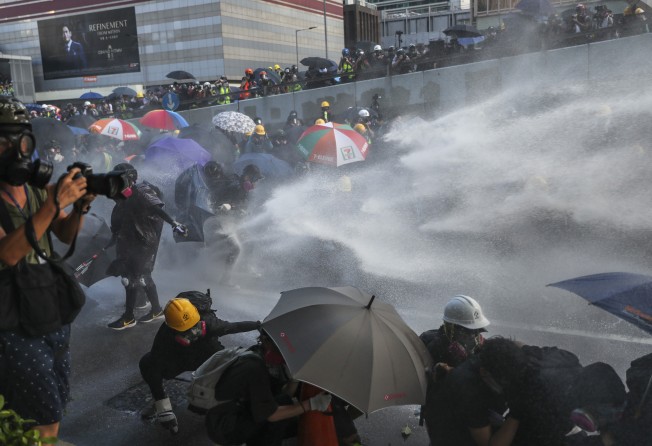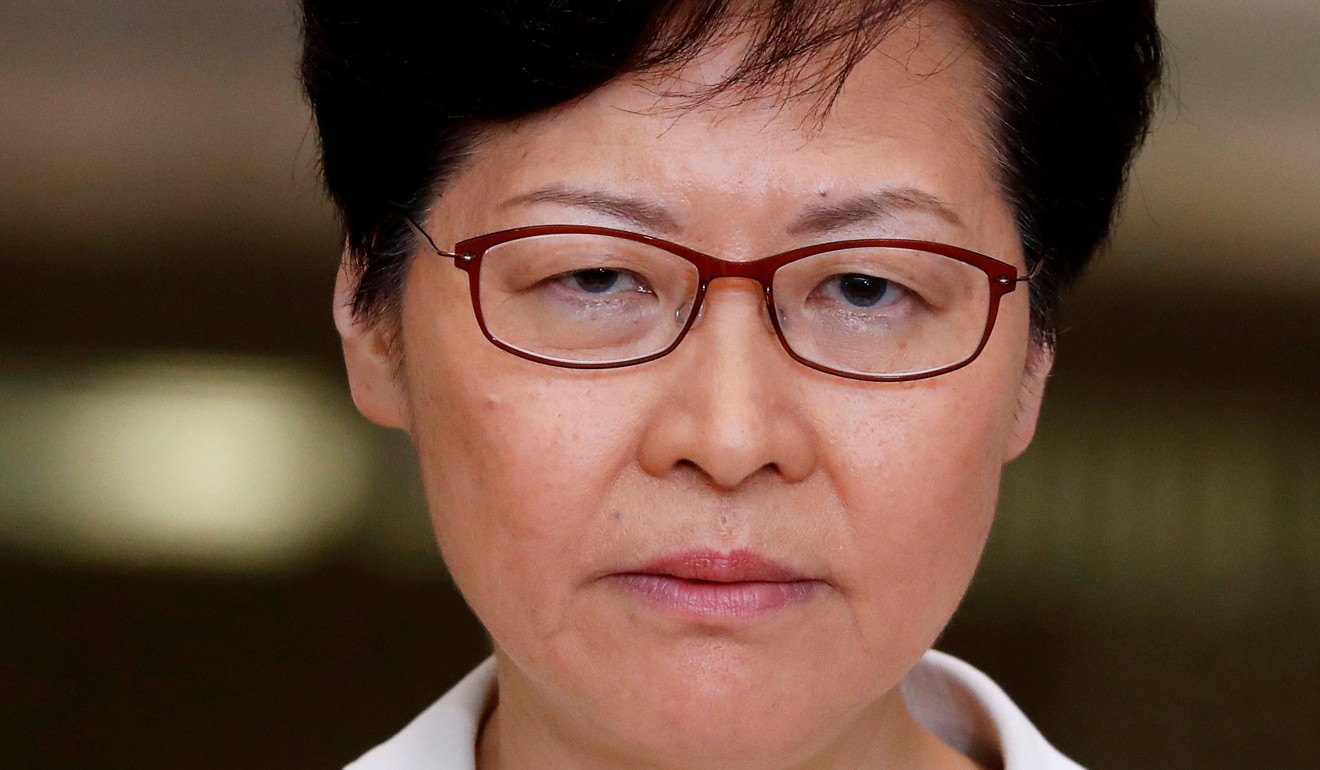
Chinese diplomat slams US for ‘negative and disgraceful role’ in Hong Kong protests
- Song Ruan, from foreign ministry commissioner’s office, calls US move to pass Hong Kong Human Rights and Democracy Act ‘epitome of hegemony’
- He tells foreign media that American support of demonstrations ‘constitutes a grave violation of international law’

A top Chinese diplomat in Hong Kong has lashed out at US politicians and officials for pushing legislation to support democracy in the city, calling the move “the epitome of hegemony” and warning that its passage would hurt American interests.
Song Ruan, from Beijing’s foreign ministry commissioner’s office in Hong Kong, also blasted “the US and some other Western countries” for playing a “negative and disgraceful role” in the ongoing anti-government protests in the city.
Speaking at a briefing with foreign media in Hong Kong on Wednesday, Song decried US senior officials and lawmakers who had shown support for the protest movement.
American support of the protests “constitutes a grave violation of international law and norms governing international relations”, said Song, who is deputy commissioner at the office.
“Their true intention is to fish in troubled waters, use Hong Kong to sow trouble in China as a whole, and hold back China’s development in every possible way,” he said.
“As we speak, the US is threatening to pass the Hong Kong Human Rights and Democracy Act with a view of justifying its interference in other countries’ internal affairs with its domestic law,” Song said. “This is the epitome of hegemony.”

In addition, Song said American interests would suffer if the bill – which has received strong bipartisan support in the US Congress – was passed.
“If the act is passed, it will undermine the confidence of international investors in Hong Kong, and stakeholders including American businesses will suffer,” he said.
“We don’t want to see that happen, and we urge the US to immediately stop the process which does nobody good,” he added.
If passed by US Congress and signed into law by US President Donald Trump, the Hong Kong Human Rights and Democracy Act would require the US government to assess the city’s level of political autonomy each year to determine whether it should continue to have a special trade status under the US-Hong Kong Policy Act of 1992.
Song’s briefing came ahead of Carrie Lam Cheng Yuet-ngor’s first dialogue with members of the public on Thursday, as she attempts to reconnect with the community and find a way out of the political crisis that has engulfed the city. The protests began in early June over a now-abandoned extradition bill that would have allowed criminal suspects to be sent to the mainland for trial, but have morphed into a broader anti-government movement.

Song rejected calls for Lam to concede to the “five demands” of the protesters, saying they amounted to “blatant political blackmail and coercion”. He reiterated that “universal suffrage” – one of the five demands – could only be achieved under Hong Kong’s mini-constitution, the Basic Law, and by following a decision by China’s top legislative body five years ago on the city’s electoral process. Dubbed the “831 decision” – the framework was handed down on August 31 – it would effectively allow the central government to screen candidates for chief executive in local elections, and triggered the pro-democracy Occupy movement in 2014.
The deputy commissioner also said that continued protest violence and chaos would only reduce the scope for discussion of political reform.
“In the current situation, I believe that any talks or reiteration of the 831 decision will only add to the chaos,” Song said. “So universal suffrage in Hong Kong … can only be realised under the framework of the 831 decision … and steps laid down by the decision must be followed.”
While Song said there would be no concessions for the protesters, he acknowledged there were bound to be problems under the “one country, two systems” model under which Hong Kong retains its own political, legal, economic and financial systems.
“This system is unprecedented, there is no prior example to follow, so it is normal to encounter some manner of problems and difficulties in practice – you can say this could be expected,” Song said.
“However, the original intention and purpose of one country, two systems will remain unchanged – namely, to safeguard the sovereign security and development interests of the country and to maintain Hong Kong’s long-term stability and prosperity,” he said.
The Beijing official also said Hong Kong’s focus should be on “stopping the riots and restoring order” while separating out people who were protesting on the streets from the “violent elements” of the demonstrations.